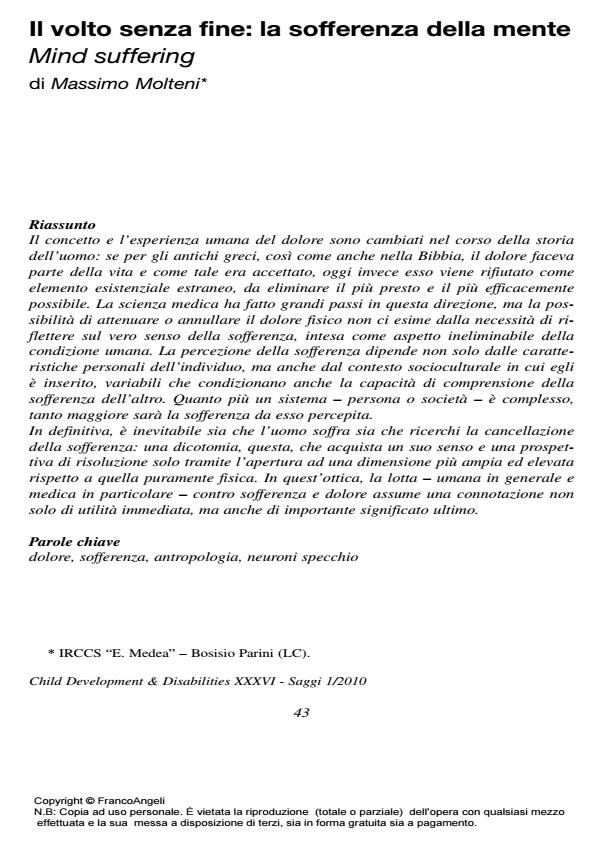Mind suffering
Journal title CHILD DEVELOPMENT & DISABILITIES - SAGGI
Author/s Massimo Molteni
Publishing Year 2011 Issue 2010/1
Language Italian Pages 13 P. 43-55 File size 285 KB
DOI 10.3280/CDD2010-001005
DOI is like a bar code for intellectual property: to have more infomation
click here
Below, you can see the article first page
If you want to buy this article in PDF format, you can do it, following the instructions to buy download credits

FrancoAngeli is member of Publishers International Linking Association, Inc (PILA), a not-for-profit association which run the CrossRef service enabling links to and from online scholarly content.
The idea and the human experience of pain have changed during the history of the mankind. If for the ancient Greeks and for the Bible, pain was a part of life and as such was accepted, today, pain is rejected as an element extraneous to life, to be removed as soon as possible and in the most effective way. Medical science has made giant steps in this direction, but the possibility to alleviate or to remove pain does not exempt us from considering the true meaning of the pain, as an unavoidable aspect of the human being. Perception of pain depends not only on the personal features of who suffers it, but also on the socio-cultural context where the person lives: these factors influence also the ability to understand the pain of the other. The more a system (person or society) is complex, the more will be the pain that is perceived. To sum up a human being suffers pain and he does try to avoid it: a dichotomy that makes sense and reaches a new opportunity only through the openness to a wider and higher dimension than the physical one. From this point of view, the challenge - of the human being in general and of the professional in particular - against pain and suffering gains in importance not only for its immediate benefit, but also for its meaning.
Keywords: Pain, suffering, anthropology, mirror neurons
Massimo Molteni, Il volto senza fine: la sofferenza della mente in "CHILD DEVELOPMENT & DISABILITIES - SAGGI" 1/2010, pp 43-55, DOI: 10.3280/CDD2010-001005